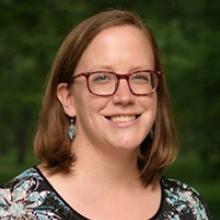An Innovative Approach to Help More Students Learn Computer Science
As our world becomes more technology-based and many jobs involve computer science, schools face increasing pressure to offer computer science classes and to have instructors qualified to teach such classes. The latest data show that only 51 percent of high schools offer a computer science course. To expand access to computer science education, states are taking a fresh look at the processes of educator certification.
A micro-credential is a recognition, usually short and competency-based, that allows an educator to demonstrate mastery in a particular area, such as teaching computer science.
While it varies from state to state, the traditional route to credentialing for computer science is often time and effort intensive; however, new ideas are emerging around how teachers can demonstrate mastery in computer science within the context of their day-to-day practice and earn a credential. One such innovation is micro-credentialing. A micro-credential is a recognition, usually short and competency-based, that allows an educator to demonstrate mastery in a particular area, such as teaching computer science. Micro-credentialing is an appealing way to boost the number of certified teachers because it can reach those in areas without access to other certification pathways. For example, teachers can earn a computer science certification by taking college courses, but many teachers, particularly those in rural areas, cannot easily travel to colleges or universities offering such courses.
Wyoming has been leading the way in micro-credentialing of teachers, including around computer science education. Wyoming partnered with AIR’s Center for Evolving Computer Science Education (CS@AIR) to build on-demand virtual professional development courses designed to prepare teachers to earn a computer science micro-credential. Topics include:
- Computational thinking;
- Impacts of Computing;
- Computing Systems;
- Data Analysis;
- Networks and the Internet; and
- Algorithms and Programming.
The first teachers in the pilot cohorts have successfully completed the AIR-developed courses and have earned their micro-credentials. One teacher who completed some of the courses commented, "The benefits of using the Canvas course for Computing Systems is that it really broke each module down and helped guide how to teach each micro-credential. I liked the activities and videos provided. I also got good ideas from other teachers in the chat room forum." Another teacher said, "I thought for someone who is newer, like myself, to computer science, this was beneficial in the different aspects of computing systems. I learned a lot about computing systems from this program."
Based on positive course feedback, Wyoming is opening the doors and inviting all educators in the state to take the courses and earn micro-credentials. Wyoming’s education leaders also are changing certification rules to make the micro-credentials count toward official computer science certification, fast-tracking a process that traditionally included enrollment in several college-level courses. Once the new rules are enacted, secondary educators in the Wyoming Department of Education’s computer science micro-credentialing program who complete the entire set of computer science micro-credentials and pass the computer science Praxis test will be eligible to add the computer science endorsement. Elementary educators who complete the entire set of elementary level computer science micro-credentials will be eligible to add the computer science endorsement without taking the Praxis.
Time will tell if other states follow Wyoming’s path in computer science micro-credentialing for educators. In the meantime, Wyoming is forging ahead on developing micro-credentials for students to earn post-secondary credit and industry-recognized credentials.

